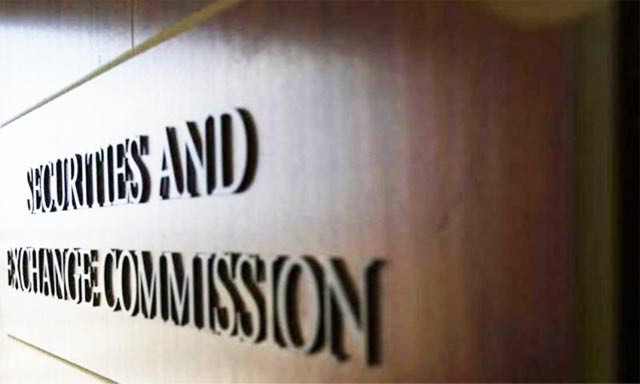Companies Ordinance 2016: Majority of companies deny having offshore shareholdings
Response will be considered a declaration in future investigations

Response will be considered a declaration in future investigations.
Majority of the companies that have so far responded to the notices served to them to disclose their offshore substantial shareholdings are giving “nil statement”, said Zafar Hijazi, Chairman of the Securities and Exchange Commission of Pakistan (SECP) on Friday.
259 Pakistani offshore company owners exposed
After promulgation of the new Companies Ordinance 2016, it is legally binding on every company to disclose their foreign shareholdings. The SECP last month served notices on all companies, estimated to be over 70,000, asking them to comply with provisions of the new law.
The government had introduced these amendments after the Panama leaks revealed names of over 450 Pakistanis owning offshore companies. However, the SECP investigation showed that only two Pakistani firms had offshore companies while the rest were owned by individuals.
Hijazi said the “nil statement” would be treated as a declaration and could be used in case the SECP came to know about those who had foreign shareholdings but were not declaring them. The SECP has given two-month deadline to disclose foreign shareholdings.
He said under the new law, giving a false statement was a criminal act and the guilty person may face imprisonment of up to seven years.
The SECP expects that 1,000 to 1,500 Pakistani companies may have substantial offshore shareholdings. Hijazi said evading taxes and money laundering had become a tendency. In the past, many laundered money and showed it as foreign investment to evade taxes, he added.
Companies Bill 2016: Foreign firms may be bound to disclose beneficial owners
Provisions of Section 452 of the Companies Ordinance 2016 relates to the Companies Global Register of Beneficial Ownership which provides that every substantial shareholder or officer of a company having 10% or more shares in a foreign company and a corporate body will have to disclose such interests.
The commission would keep record of the information received in a company’s Global Register of Beneficial Ownership.
The section also provides that any investment in securities or other interest by a company incorporated under the Companies Ordinance in a foreign company or a corporate body shall also be reported to the registrar along with the annual report. Any contravention or default in complying with the above provisions will be deemed as an offense and liable to a fine, according to the corporate sector regulator.
The SECP said earlier provisions of Section 222 of the repealed Companies Ordinance 1984 allowed gathering of information only in respect of shares held in local companies.
The new amendment has been introduced keeping in view the international practices and is aimed at providing a self-reporting mechanism for collection and consolidation of beneficial ownership data and its access to users and other government agencies in evaluating their credentials, said the SECP.
The new provision is aimed at maintaining transparency and is helpful in addressing illicit financial flows to tackle corruption, money laundering and terrorist financing.
Proposals to deter foreign companies from tax evasion
Recently, the UK prime minister advised all foreign companies in the UK to report their foreign shareholdings to the newly introduced public registers of beneficial required ownership.Other jurisdictions including France, the Netherlands and Nigeria have also agreed to launch their own public registers of true company ownership.
Hijazi said the SECP was the only institution in the country fully equipped to investigate financial transactions and money laundering issues.
In Pakistan, the number of registered taxpayers is very low compared with the number of companies registered under the companies law.
Published in The Express Tribune, December 3rd, 2016.
Like Business on Facebook, follow @TribuneBiz on Twitter to stay informed and join in the conversation.



















COMMENTS
Comments are moderated and generally will be posted if they are on-topic and not abusive.
For more information, please see our Comments FAQ